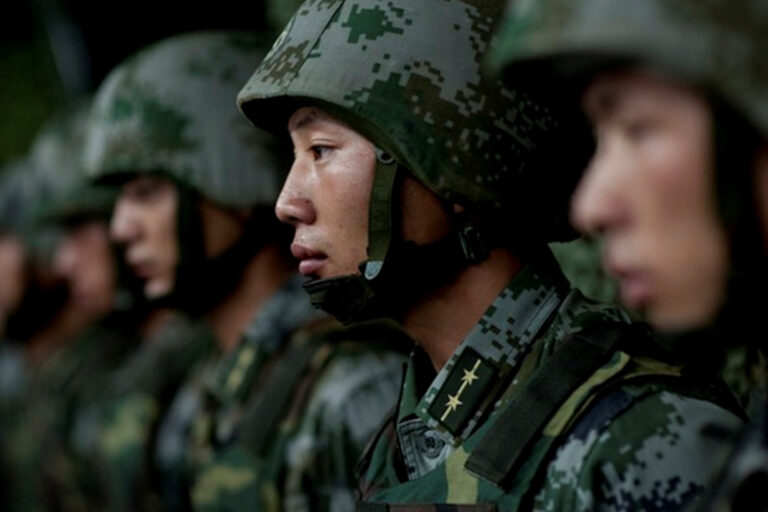Part 1 of 3 in a series on NATO by Nic Wondra
And it sure is one tough gulp. On 7 November the US ambassador to NATO, Evo Daadler, was in Washington for about twenty-four hours. In this time he met with a number of cabinet officials, President Obama, and made a stop at the Atlantic Council which I attended. He talked about NATO’s operation in Libya, the successes and contributions of NATO members, and the road ahead. He also frankly admitted that a consensus around the Libyan operation took a bit of effort. The official line is that the alliance is in great shape, has never been stronger, etc., but after ten years of war, open cases of dissent among the membership, and Uncle Sam bugging European governments to spend more on defense, the official line is difficult to believe. Let’s be clear: the alliance is on the rocks and a lot of arm-twisting occurred to make the Libya operation happen.
Italy may have been pushing for it and the whole operation was undertaken with incredible speed. European allies and partners fronted a lot of the cost. Qadaffi is out and there is no long-term, boot-wearing NATO occupation. Talk about a success. But Ambassador Daadler was open about how the operation could not have happened without US forces. In fact, 70% of Libya’s sorties were flown by the USAF. This is hardly complementary to Europe’s contributions and feeds the overwhelming feeling that has been around a long time in Europe: that NATO is an instrument of US policy and Europe mostly has to go along with whatever that policy is (or is not).
So where does this leave European security? The short answer is that no one knows. NATO’s out-of-area engagements over the past ten years worry NATO members just as much as they worry Russia and China, as evidenced by the recent UN Security Council veto on action in Syria. Even so, action in Syria seems off the table (see a recent piece by the Atlantic Council). Intense Russian posturing against Western actions in Iran over Iran’s alleged nuclear weapons program should mean that there will not be a Western intervention—at least publicly. Libya is the third large-scale out-of-area operation in ten years. Could this be a breaking point? Could this cash-strapped alliance finally tell Uncle Sam to slow down and balance his checkbook before embarking on another misadventure? It is not so simple, as NATO has encouraged its allies to purchase supplementary components of the network-centered war machine, meaning if Belgium’s purchase of F-16s does not have Danish AWACS support, and Italian ships are not Aegis-integrated, such expenditures are for naught. As such, it seems like Washington will be calling the shots into the near future; however, European dissent for American policy is likely to increase, at least on the margins and regarding interventionist operations.
If the NATO alliance is indeed on the rocks, there is a possibility that some post-Soviet countries, like Georgia, will no longer be interested in joining. Georgia and Ukraine are still interested in principle, but they know that NATO is a political organization and that its politics are increasingly unstable. Membership is not in Ukraine’s interest anymore as she tries to maintain a pragmatic foreign policy. The Russia question clouds policy on every front, the subject of the next post in this series.
In any case, Russia and China are nervous because political-ideological restraint seems gone and the standard for foreign intervention is up in the air. The west seems to miss these perspectives on international law while also missing an opportunity to engage and shore up the definitions and standards necessary for great power intervention. Perhaps we have President Bush (Jr.) to blame for this conflict between state, alliance, and international interests, but the primary institutional hurdle is that the alliance is a relic.
This is not the say that alliances are relics, but NATO was not re-branded post-1993 (the legal end of the USSR). New strategic goals were poorly defined and the Bush Jr. administration somehow argued that Afghanistan was Europe’s back yard. As an alliance member must pull their weight to gain US protection in the alliance, states now must weigh their security interests in a very real way—Is it safer going it alone by declaring neutrality, and avoiding the binary choice that pervades discussions?
Allies are not necessarily friends and power politics still require smart politics. To convince NATO members to provide personnel for any new operations, whether in Somalia or elsewhere will require much more arm-twisting than before because domestic electorates are less willing to support going with the alliance no-questions-asked. NATO may be here to stay, but will it stay as we know it?
(photo of NATO Headquarters courtesy of the EuropeanParliament)
Written by Nic Wondra
Nic Wondra is a first year MA candidate in Russia & Eurasia studies. He was a Fulbright Scholar to Georgia and studied at Cornell College.




